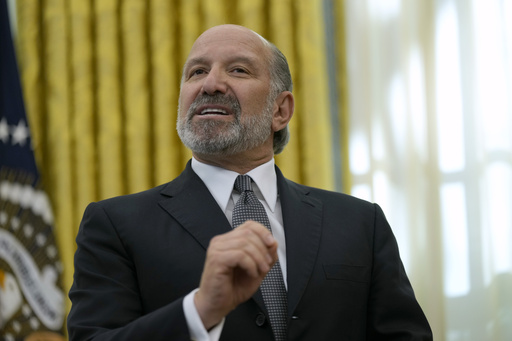
WASHINGTON — On Tuesday, the Senate approved the appointment of affluent financier Howard Lutnick as the new Secretary of Commerce, solidifying President Donald Trump’s staunch advocate for his stringent trade strategies.
At the helm of the Commerce Department, Lutnick, previously the CEO of Cantor Fitzgerald, will be in charge of a workforce of 50,000 that handles a variety of tasks, such as gathering economic data, managing the census, and providing weather forecasts. Nevertheless, it seems he will predominantly focus, alongside Jamieson Greer—who Trump’s appointed as the chief U.S. trade negotiator—on implementing the president’s aggressive plans to levy tariffs on trading partners, which includes both allies and rivals.
The confirmation vote in the Senate concluded with a tally of 51-45 in favor of Lutnick.
Trump perceives tariffs as a multifunctional economic instrument. They serve various purposes: generating revenue to fund tax reductions elsewhere, shielding American industries, and exerting pressure on other nations to concede on important matters such as trade barriers, immigration policies, and drug trafficking. While many mainstream economists argue that tariffs are largely detrimental to the economy, as they increase costs for import companies in the U.S. who then pass those costs onto consumers—potentially leading to inflation—Lutnick rejected the notion that tariffs could escalate inflation during his confirmation hearing last month, referring to it as “nonsense.”
He voiced a willingness to implement comprehensive tariffs “country by country” as a means to compel other nations to reduce barriers against American exports.
Recently, Trump unveiled his strategy for what he termed “reciprocal” tariffs, proposing to elevate U.S. import tax rates to correspond with the higher tariffs imposed by other nations on American products. This approach threatens to dismantle decades of established world trade regulations, which have typically arisen from multi-nation negotiations grounded in mutual agreement since the 1960s. Trump is taking charge of the tariff-setting process.
In addition to these measures, the president has already enacted 10% tariffs on imported Chinese goods and increased tariffs on foreign steel and aluminum. He has also indicated potential 25% tariffs on products coming from Canada and Mexico, although the implementation of these tariffs has been postponed until March 4.
Howard Lutnick’s experience includes navigating a significant crisis; he was at the helm of Cantor Fitzgerald during the September 11, 2001 attack on the World Trade Center, which devastated the firm, resulting in the loss of two-thirds of its employees, totaling 658 individuals, including Lutnick’s brother. Following the tragedy, he played a crucial role in the firm’s recovery and currently serves on the Board of Directors for the National September 11 Memorial & Museum.
As part of his appointment, Lutnick has committed to divesting from his extensive business interests, which his financial disclosure revealed as being connected to over 800 different businesses and private entities.

